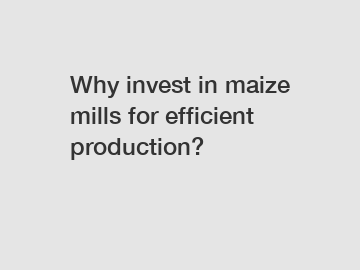How to Choose the Best Fertilizer Spreading Farm Tractor?
**Choosing the Best Fertilizer Spreading Farm Tractor**Investing in a fertilizer spreading farm tractor is a critical decision for any farmer looking to enhance productivity and ensure efficient farm management. Selecting the right tractor can significantly affect the efficiency of your operations. Here are key factors to consider when choosing the best one:**1. Understand Your Requirements** - **Farm Size**: Assess the total area you'll be managing. Larger farms may require tractors with higher horsepower and larger spreaders. - **Type of Crop**: Different crops may necessitate specific fertilizer applications. Understand the needs of your crops to choose the right equipment.**2. Tractor Specifications** - **Horsepower (HP)**: Pick a tractor with sufficient horsepower to handle the load and work efficiently on your farm’s terrain. - **Weight and Stability**: A heavier tractor can manage larger spreaders more effectively, providing better stability especially in uneven terrains. - **Transmission Type**: Choose between manual, automatic, or hydrostatic transmissions based on your preference for ease of use and control.**3. Compatibility with Fertilizer Spreaders** - **Spreader Type**: Ensure that the tractor is compatible with the type of fertilizer spreader you plan to use, whether it’s a broadcast or a drop spreader. - **Hitch Options**: Check the hitch specifications on the tractor. Different tractors have various hitch types and capacities.**4. Efficiency and Technology** - **Fuel Efficiency**: Analyze the fuel consumption of the tractor. A fuel-efficient model may save you a considerable amount in the long run. - **Technology Integration**: Modern tractors often come with advanced technologies like GPS and auto-steering, which can aid in precise application and reduce waste.**5. Comfort and Ergonomics** - **Operator Comfort**: Consider the comfort level of the cab. Features like air conditioning, adjustable seats, and intuitive controls can make a significant difference during long hours of work. - **Visibility**: A well-designed cab with good visibility can enhance safety and precision while operating the tractor.**6. Maintenance and Support** - **Brand Reputation**: Research the brand's reputation for reliability and durability. Trusted brands often provide better support and spare parts availability. - **Maintenance Requirements**: Understand the maintenance schedule and costs associated with the tractor. Low-maintenance models can save you time and money.**7. Budget Consideration** - **Initial Cost vs. Long-Term Value**: Determine your budget but also consider the long-term value. Sometimes a higher initial investment leads to lower operational costs. - **Finance Options**: Explore financing options or leasing to manage your budget more effectively while acquiring the right equipment.**8. Reviews and Recommendations** - **User Reviews**: Look for reviews from other farmers who have used similar tractors. Their insights can provide valuable information regarding performance and reliability. - **Dealer Recommendations**: Consult with local dealers who can offer recommendations based on regional needs and specific farm setups.**Conclusion**Choosing the best fertilizer spreading farm tractor requires careful consideration of multiple factors, from specifications to budget. By following these guidelines, you can make an informed decision that will ultimately enhance your farming operations and improve your yields. Always prioritize your unique farming needs to find the perfect fit.
For more fertilizer spreading Farm Tractor, Mountain Tractor, Palm Plant Farm Tractor supplierinformation, please contact us. We will provide professional answers.
Further reading:Key Questions to Ask When Choosing a Lawn Care Service
Is the Electric Dump Truck the Future of Construction?
Maximize Efficiency with Tubes and Shell Heat Exchangers
How Can Shelling Machines Improve Efficiency for Small Farmers?
Why Build Lithium Ion Battery Lines in USA?
How Is Sustainability Shaping Animal Feed Processing?
Maximize Efficiency with 220KW Cow Dung Briquette MachineFurther reading:
Enhancing Efficiency with Pellet Coating Machine in 2024
How Can Feed Pellet Grading Improve Animal Health and Nutrition?
Is Your Seed Oil Extraction Machine Efficient Enough?
Exploring the 120TPD Steel Structure Flour Plant
2024 Guide to Maize Mill Turnkey Projects
What are the benefits of animal feed pellet mills?
Top Tips to Buy Commercial Brewery Equipment Wisely
- Previous: Key Questions to Ask When Choosing a Lawn Care Service
- Next: None
Comments
- 0










